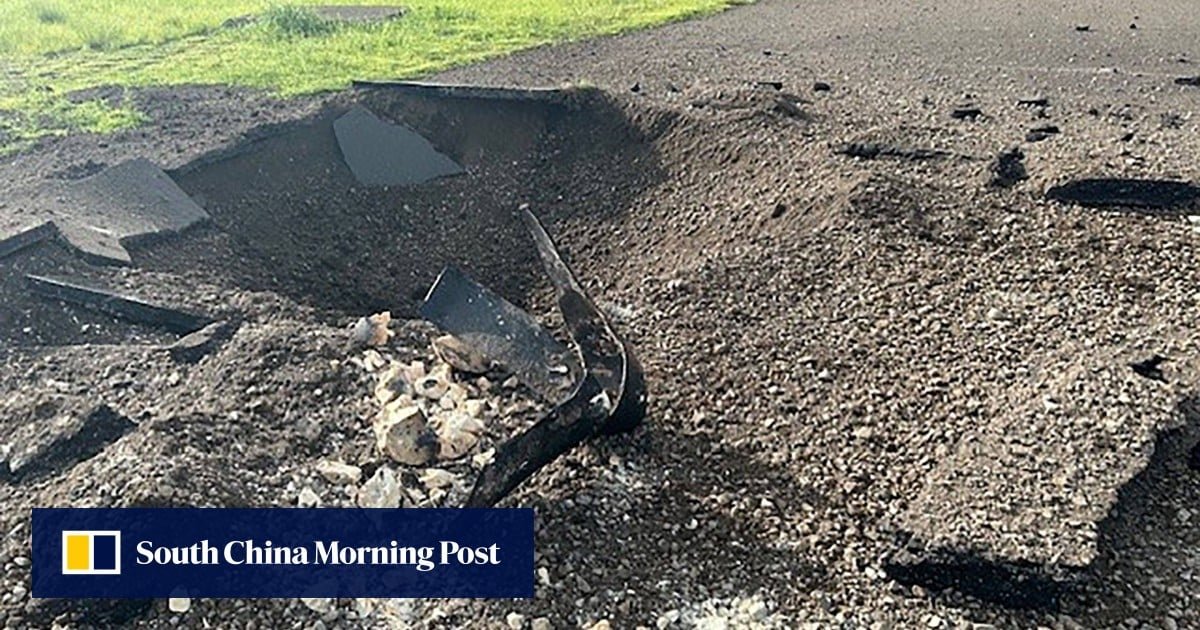
Japan has ordered a thorough search for munitions that may still be buried beneath two airports in the south of the country after an unexploded bomb was found at Okinawa’s Naha airport, underscoring the danger military analysts say such wartime relics still pose.
Alarmingly, national broadcaster NHK reported that a Japan Airlines aircraft with 93 passengers and crew had passed almost directly over the 250kg (550 pounds) device about two minutes before it exploded. The blast – captured by a nearby security camera – left a crater about 1 metre (3.2 feet) deep and 7 metres long, and threw shrapnel and other debris over a 200-metre radius.
Analysts suggest the weapon may have been activated as a result of ground movement from the aircraft passing about 1 metre above.
“These bombs are usually safe, although if they are disturbed or their inner workings get wet then they can become more unstable,” said Garren Mulloy, a professor of international relations at Daito Bunka University and a specialist in military issues.
“Over time, the detonator and primer can deteriorate, but also many were fitted with trembler switches that would detonate the device if someone tries to defuse them after they have been dropped,” he told This Week in Asia. “The bottom line is that they are less predictable if they did not go off as they were originally designed to do.”







